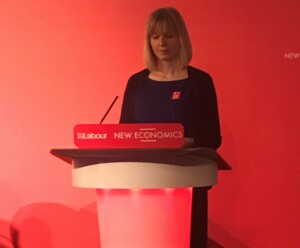Why a Committee System Would Bring Together Bristol Anthony Negus

Share this
Alderman Anthony Negus was a Bristol City Councillor for Cotham Ward 2009-2021 (Liberal Democrats).
This article is part of Bristol Ideas’ Referendum 2022 debate which looks at all aspects of city governance as part of ongoing work on democracy and the forthcoming May 2022 referendum.
There is, rightly, a wide range of views on how to achieve the best outcomes for everyone in Bristol. They revolve around the relationship between widespread public involvement in decision-making – seen variously as inclusive or inefficient – and single-point decisions.
Criticism of discussion and favouring a stripped-down route to any solution overlooks the potential value and energy at each end of this process. Co-operation in more generally acceptable solutions offers ownership that provides citizen energy and resource for more successful delivery.
Westminster, the sub-regional metro mayor and Bristol’s council each have their areas of responsibility, though not always clearly defined, and have varying systems of governance and even voting. Outside Bristol, some places also have town/parish councils and neighbourhood partnerships. It makes sense for decisions to be made closest to where they are to work, ideally by the people most affected. The stand-out autocratic barrier in this whole process is the Bristol mayor who can and does overturn opposing majority (even unanimous) council decisions and can limit examination of his reasons, even when this is for his advantage.
I have experienced from all sides the full range of opportunities and limitations of city council governance, first as a community campaigner and then a councillor for 12 years. I was a cabinet member in the governing administration and a majority and opposition back-bencher serving in senior scrutiny committee roles. Local government legislation allows that Bristol may have either a mayoral system or a leader working with cabinet or through a committee system. The administration in which I served made substantial changes in Bristol via a cabinet system. Nevertheless, in a free city the committee system could offer more opportunity for ideas from outside the majority administration to gain traction. Their development could be debated earlier and more openly, with representations, which would improve their robustness and acceptance. Making the best of these clear benefits must not ignore the risks that come from slowing down the process. Councils which have adopted the committee system have been reshaping it and addressing the need for mitigation.
Westminster has a respected cross-party select committee system, taking evidence and developing legislation-changing recommendations. Creating a more effective model for local authorities is surely possible, and highly desirable. Previous council administrations have gathered ideas, community plans and recommendations from focus groups, neighbourhood partnerships and citizens’ assemblies – some of which have been closed down under the mayoral system. The present One City model, though a great title, is a rehashed gathering of selected city organisations, as met under all previous administrations though now by invitation only. It should be freed to be more effective, and its resources redirected, rather than providing cover for an ultimately authoritarian process.
Opening up the process, perhaps through a committee system, should improve participation and reduce dissatisfaction – though potential weaknesses should be acknowledged and addressed. We must find better ways to engage with more citizens from all backgrounds, not just the usual suspects from the high-replying parts of the city, to ensure a productive and binding consensus. Alongside this, innovation needs to be promoted to address the risks from sliding into the middle course, with emphasis on creative ways of developing solutions, particularly those with long-term cost-benefit advantages. Experience has shown that informed original thinking – by organised forums or committees – is so often superior to an unconditioned narrow vision.
Resistance to such change is not overwhelmingly a party-political issue, though tribalism doesn’t help. Mayors, even when nominally independent, have changed to operate above the elected council rather than to lead it. People have a variety of core values but there is more consensus than difference on approaches to fairness and well-being that should encourage co-operation and the building of more bridges than walls. We deserve leaders that support this collegiate process, not ignore it. Lately we’ve seen too many around the world – and nearer – who stand by their inviolable, separated status, often protected while increasingly isolated, by pushing the system sustained by fear or inertia. There is a better way.
When this mayoral role was promoted by Westminster as more manageable (a role which nine out of ten cities rejected and Bristol alone accepted by a thin majority in a small turnout), a mayor was advertised as having the same status as the previous leaders of the council. That was quickly adapted, as many warned, in 2012 and more so in 2016. The previous lower-profile corporate cabinet leadership was very effective but, like all previous administrations, was churned up with almost annual elections. Despite this, it achieved European Green Capital status for the city, prompting requests for advice from around the world, although George Ferguson maintains the mantra that nothing was achieved before his accession.
Progress stems from innovation and general challenge, from which the outcome is more likely to be embraced by more people, strengthening the beginnings and end of moving forward. If these dealings are transparent and inclusive, this would surely widen and strengthen Bristol’s voice, which Westminster and others should rate more highly than the personal views of any single politician.
Find out more about Bristol Ideas’ Referendum 2022 debate. Copyright of articles remains with the authors.


